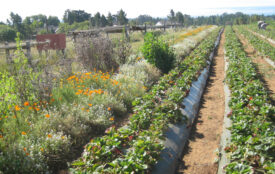Tourism, Terrorism and a Culture of Welcome
Tourism versus Terrorism – two phenomena that could hardly be more antagonistic to each other. Whereas Tourism faces its hitherto farthest-reaching challenge as the world’s leading ‘peace industry’, terrorism tries to impose its sinister ideas through violence, atrocities, and war.
Nonetheless, both Tourism and political terrorism seem to share the highly inspiring idea of paradise. Since 9/11 at the latest, Tourism, indefatigably promoting post-card landscapes as time-limited surrogates of paradise on earth, has become fatally exposed to terrorism, which enforces its own ideas of paradise. As we have learned, an enforced paradise usually comes out as little less than hell.
Hell versus Paradise – isn’t that the apocalyptic juxtaposition of the final stage of human existence, right on the threshold to eternity? People always felt inspired by this eerily-marvellous proposition. It may rise grand expectations, offer spiritual comfort, yet also an ideal scenario to political terrorism, especially if embedded in religion. Such a pseudo-religious framework has enabled Islamist terrorists to stage an ideological somersault over Islam: Taking the opportunities of failed Western policies in Iraq, Syria and Libya, and smartly using state-of-the art communication technologies, Islamists intertwine Islam with an appropriate retrospective ideology, linking their cause with the seemingly glorious past of the Caliphate, and call it ‘Islamic State’. Besides, disseminating terror, thus causing streams of refugees, has always been an appropriate means to get rid of the unwilling and try to create turmoil in destination societies.
Apart from the terrorists, however, it’s the refugees, too, who know how to handle modern communication equipment. In no time, Germany’s big-bang announcement of an unlimited ‘culture of welcome’ made its way to the smart-phones of hundreds of thousands of people, ready to leave the Middle East, North Africa, Afghanistan, with little more in their minds than to live in peace and security. Admittedly, that ‘culture of welcome’ has been discussed controversially. But doesn’t it undoubtedly have also to do with travelling, with organisation? To start with hands-on improvisation among the first most obvious requirements, plus providing immediate accommodation, food, information and practical advice, followed by creating perspectives and job opportunities.
Whenever there is news on a terrorist attack, there are comments about its effect on tourism, especially when Travel & Tourism plays an important role in the country’s economy. Indeed, vacation professionals are scared of vacancies: cancelled bookings, empty hotels and scary ghost towns. Now, hundreds of thousands of migrants from war-torn regions are flooding targeted destinations of hope. Meanwhile, local people, afraid of foreign infiltration, are getting more and more concerned, torn between anxieties about maintaining their own cultural identity and the alarming rise of xenophobic unrest. A strongly defended, but also disputed culture of welcome is at stake. Tourism can no longer demand politics to keep out, sustainable Tourism requires clearly determined political standpoints.
Globalization brings about winds of change. They seem to blow particularly stiff, and all of us can feel them like preludes of a new ‘Zeitgeist’. It’s worth looking across the fence, other sectors have their cause, too, and opportunities of building bridges ought to be seized. Why not choose the example of the Bauhaus architecture, having emerged after World War I? “To capture the ‘Zeitgeist'”, information leaflets tell visitors of a recent exhibition at the Vitra Design Museum, “you need to understand trends and tendencies, either strengthening them or providing contrasting alternative (utopian) designs. The Bauhaus proved to be an expert in this by bringing together numerous important protagonists from the world of art, architecture and many other disciplines … Designers were not only to create everyday objects, but to play an active role in re-shaping society”[1].
Sometimes it needs accidents or even calamities to make people come closer to cooperate: Maybe the migration issue and its imponderables can also be turned into a set of out-of-the-box opportunities for Travel & Tourism, creating a new communication platform of humanitarian ‘clusters’, to bring together protagonists from different sectors and disciplines. Tourism stakeholders, as soft-skills specialists and consistent defenders of migrants’ dignity, yet also of hosts’ identities, values and guidelines that migrants must observe? — Tourism leaders, as ‘Zeitgeist’ trendsetters of cross-cultural and cross-industry solidarity, as catalysts to ‘higher purpose’ missions, as image-makers for host-regions and countries, i.e. reaching out far beyond mere holiday issues?
Will Tourism play an active role in re-shaping society? — There are already promising initiatives: Almost forty companies, including tourism firms like TUI and Lufthansa, launched the initiative ‘We Together’, to offer jobs, training and support for refugees to Germany. First signs of an industry reflecting over its potential cross-sector impact? Travel & Tourism could play a high-key role encouraging hosts to meet migrants peer-to-peer, to show pride of their culture, without slipping into cultural chauvinism or allowing themselves being captured by fears of cultural alienation.
Questions arise that deserve further developing:
- Which part of a ‘higher purpose’ can Tourism play, when ‘sun & fun’ is no longer the rationale for travelling, but migration, caused by war and terror?
- What about the Travel & Tourism industry’s standpoint concerning risks of cultural alienation of a host nation, if its carrying capacity is exhausted? How relevant is this question – usually applicable to steer the number of tourism arrivals – in the context of mass migration?
- What can tourism organisations, institutions, and private companies do to help restore human dignity and provide to appropriate refugees professional training in Sustainable Tourism?
- Can Travel & Tourism, measured against its own claims, provide effective help, particularly in systematically educating and training Sustainable Tourism, to get started in primary school? — After all, in our ‘age of specialization’ interdisciplinary learning from the very beginning has been more and more key to multi-functional stakeholders, and for Travel & Tourism particularly, interdisciplinary thinking and cross-sector networking have become key.
- Which other ‘peace’ industries (e.g. Renewable Energy) and organisations/institutions, religious denominations and initiatives (Avaaz.org, Change.org, globalmarshallplan.org …) should Tourism strategically link up with, in order to synergize peacemaking effects?
- How can Tourism serve as an ‘intercultural promoter’ of the great assets of liberal societies?
- How can Travel & Tourism act as a ‘vector of the Golden Rule’, preventing xenophobia and furthering social integration and cooperation?
- When will Travel & Tourism, offering creative travel packages, have recourse to great writers, poets, authors and explorers (e. g. the Great Silk Roads), as examples of cross-cultural encounters and the exchange of intercultural knowledge and wisdom?
Successful travel destinations know well how to target those visitors who are considered appropriate to the destination and hence desired. They also have fine-tuned their sensors on carrying capacity limits, in order to avoid all those negative consequences that too much of a good thing usually entails.
Of course, as hosts we cannot select migrants according to our own preferences, but instead should welcome them following the degree of their own neediness. Last, but not least, defending our own values, migrants’ dignity and a healthy approach to ‘carrying capacity’ criteria could provide the sound balance of a promising culture of welcome, contrary to a fear-driven culture of terrorism. This would enable us to watch the traps and flaws of an otherwise noble culture of welcome. In 2016, coincidentally proclaimed by UN the ‘Year of Sustainable Tourism for Development’ and by Pope Francis the ‘Year of Mercy’, Travel & Tourism could open doors to a new ‘Zeitgeist’ hospitality that
would certainly not create paradise, but point to new perspectives, facilitate integration, without demanding assimilation.
Source
Max
Haberstroh, International Consultant on Sustainable Tourism; Tourism Management
positions in Germany; missions to
Eastern Europe/Russia, Southeast and Central Asia, Middle East/North Africa,
Indian Ocean, South America; www.linkedin.com/in/maxhaberstroh








